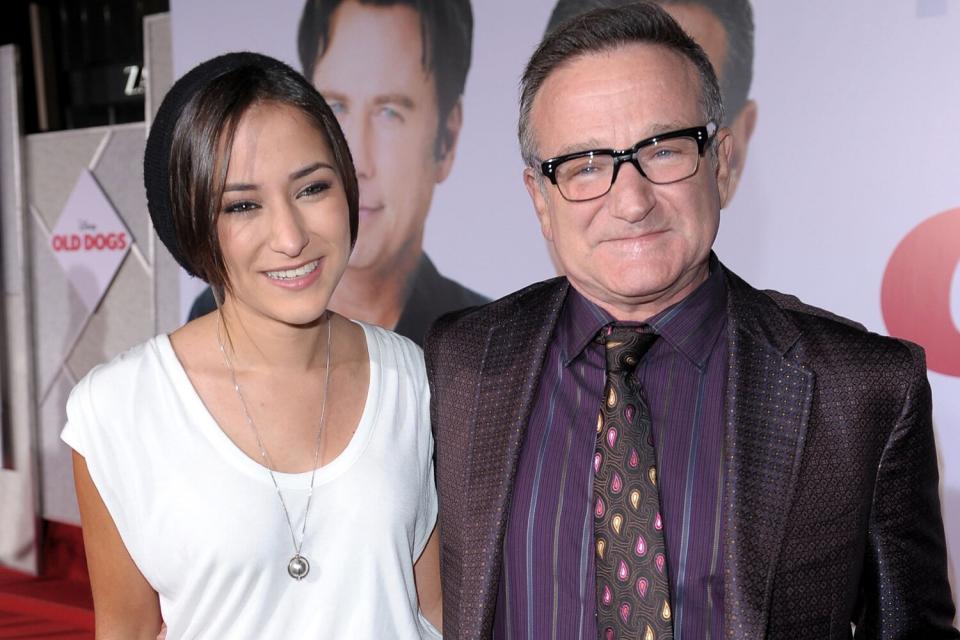Robin Williams' daughter Zelda says AI recreations of her dad are 'personally disturbing'
Artificial intelligence has a lot of potential uses, and abuses, such as recreating the image or voice of a person without their consent — which is one of the issues at the heart of the ongoing actors' strike.
Zelda Williams understandably has some opinions on this — as her dad was the often imitated, never duplicated Robin Williams — and she weighed in on the practice of AI recreations, calling them "disturbing."

Kevin Winter/Getty Robin Williams (right) and daughter Zelda in 2009
"I am not an impartial voice in SAG's fight against AI," Williams wrote via her Instagram Story on Sunday. "I've witnessed for YEARS how many people want to train these models to create/recreate actors who cannot consent, like Dad. This isn't theoretical, it is very very real."
Robin Williams, an Oscar-winning actor and comedian known for his improvisational skills and characterizations, died by suicide in 2014.
"I've already heard AI used to get his 'voice' to say whatever people want and while I find it personally disturbing, the ramifications go far beyond my own feelings," she continued. "Living actors deserve a chance to create characters with their choices, to voice cartoons, to put their HUMAN effort and time into the pursuit of performance."

Zelda Williams/Instagram Zelda Williams' IG story
SAG-AFTRA made AI recreations of an actor's image or voice — including "the use of performer's voice, likeness or performance to train an artificial intelligence system designed to generate new visual, audio, or audiovisual content" — as "a mandatory subject of bargaining."
The subject is a hot button topic in Hollywood, with Tim Burton comparing AI recreations to "a robot taking your humanity, your soul." In support of the actors' strike, John Cusack called AI a "criminal enterprise." And on Saturday, Tom Hanks warned of an AI video of himself promoting a dental plan.
"These recreations are, at their very best, a poor facsimile of greater people," Williams concluded, "but at their worst, a horrendous Frankensteinian monster, cobbled together from the worst bits of everything this industry is, instead of what it should stand for."
The WGA it seems has found a path forward, embracing the future and possibilities of AI while ensuring there are guardrails to protect human creators. As part of the deal that ended the writers' strike, artificial intelligence can't be used to write or rewrite literary material, a writer can choose to use or not to use AI for themselves when working, and studios can't use a writer's work to train AI without the writer's knowledge.
Want more movie news? Sign up for Entertainment Weekly's free newsletter to get the latest trailers, celebrity interviews, film reviews, and more.
Related content:
